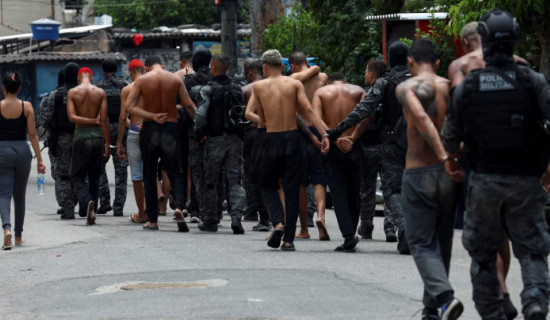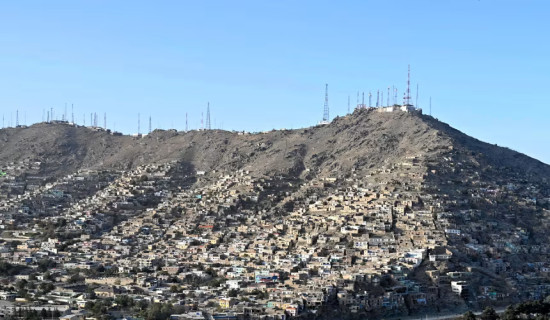- Thursday, 29 January 2026
UN maternity aid looted in Port-au-Prince as Haiti crisis deepens
By Caitlin Hu, Michael Rios, Heather Chen and Manveena Suri, Port-au-Prince, Haiti, Mar 17: A container carrying essential items for newborn babies and their mothers – including resuscitators and other critical supplies – was looted in Port-au-Prince on Saturday, aid agency UNICEF said in a statement, as gang violence and a humanitarian crisis worsen in the Haitian capital.
In addition to maternity and neonatal supplies, the looted container also held “early childhood development and education and water equipment,” UNICEF said. More than 260 humanitarian-owned containers at the port are now controlled by armed groups that breached the main port last week, the UN’s child agency added.
The theft of the supplies “occurs at a critical moment when children need them the most,” said UNICEF representative Bruno Maes in Haiti. “Looting of supplies that are essential for life-saving support for children must end immediately and humanitarian access must remain safe,” Maes added.
“Depriving children of vital health supplies amidst a collapsing healthcare system is a violation of their rights.”
Since January, violence in Haiti has exacerbated an already crumbling healthcare system.
Three out of four women and children in the Port-au-Prince area do not have access to basic public health and nutrition, according to UNICEF.
There are only two functional surgical operating facilities available in the capital. Six out of 10 hospitals across the country are unable to function due to electricity, fuel and medical supply shortages.
The bloodshed has continued in recent days, with several “bandits” killed during a police operation in a Port-au-Prince neighbourhood where gang leader Jimmy “Barbeque” Cherizier lives and operates, the Haitian National Police (HNP) announced on Saturday.
Authorities said they exchanged fire with Cherizier’s men in the operation carried out on Friday, to “thwart the actions of armed gangs.” Police also said they seized firearms and unblocked roads in the Lower Delmas neighbourhood.
“New strategies are being implemented by the police institution with the aim of reclaiming some areas occupied by these armed gangs in recent days, in order to facilitate the free movement of peaceful citizens,” a statement from the HNP read.
Two police sources told CNN on Friday that authorities had launched the operation in Lower Delmas as special forces pursued Cherizier.
The HNP did not specify if police had located Cherizier but said a report on the progress of the operations would soon be made public.
Haiti has struggled to resolve a long-running political and humanitarian crisis and 80 percent of Port-au-Prince is currently controlled by gangs, according to UN estimates.
Inside the country, few safe spaces remain. All roads leading out of Port-au-Prince these days have been blocked by gangs. National police have fought back but with limited resources.
All-access to ports and the international airport has been blocked.
Nothing is coming in either. Grocery stores are running out of food, gas stations are out of fuel and hospitals are short on blood.
“Failure to stop the violence and reopen critical logistics routes will significantly exacerbate the healthcare crisis,” said Maes. “We are witnessing a humanitarian catastrophe, and there is little time left to reverse it.”
A CNN crew was able to land in Port-au-Prince by helicopter on Friday following days of on-again, off-again plans that required detailed security arrangements and multiple layers of diplomatic approval.
Meanwhile, the first flights of a UN air bridge between Haiti and the neighbouring Dominican Republic have been completed, UN sources told CNN. For now, the only option for coming into and leaving Port-au-Prince is a private evacuation helicopter, available to wealthy foreigners and diplomats – where a single seat currently can cost more than $10,000.
Medical supplies would be the first freight, sources said, with UN workers being rotated in and out of the country.
















